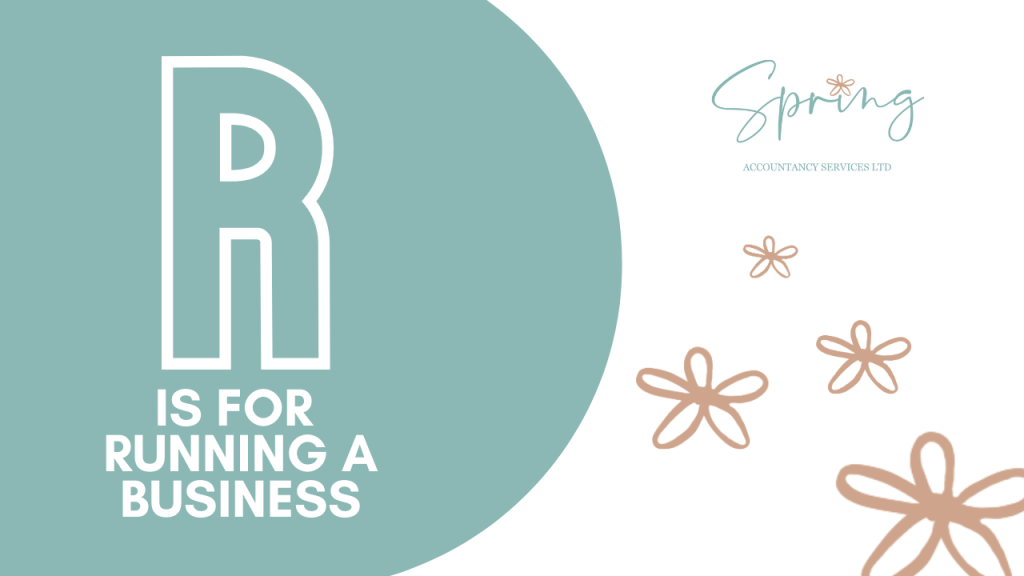R is for Running a Business
Starting up a business of your own is a big step, it takes courage and dedication and sometime can be over whelming.
So where do you start.
One of the first steps is deciding on a form of legal entity.
There are 3 basic forms of business.
Sole Trader
This is a business owned and operated by 1 individual.
It isn’t run separately to an individual but more of an extension to them. They own the business assets and are liable for the debts incurred by the business.
It is probably the easiest way to run a business as there are less legal requirements.
Partnership
Owned by 2 or more individuals. The ownership rights and responsibilities can be set up in various ways and detailed in a partnership agreement.
Typically, although partnerships are a legal entity, any issues will in due course fall with the partners personally and potential their assets.
Partnerships submit tax returns however usually no tax is paid, and the Partners split is then transferred to their personal tax return and tax calculated there.
Limited company
This is a separate legal entity and must be registered at Companies House. Being a separate legal entity means it has its own legal rights and in most circumstances responsibility of the debts is limited to the company.
Limited companies must file company accounts and confirmation statements at Companies House and corporation tax returns at HMRC, Corporation tax may be due.
There are other advantages of limited companies for example being easier to sell the business or extracting profits in a tax efficient way.
If you are unsure what is best for your business and personal situation, then please get in touch to discuss.
Flo
